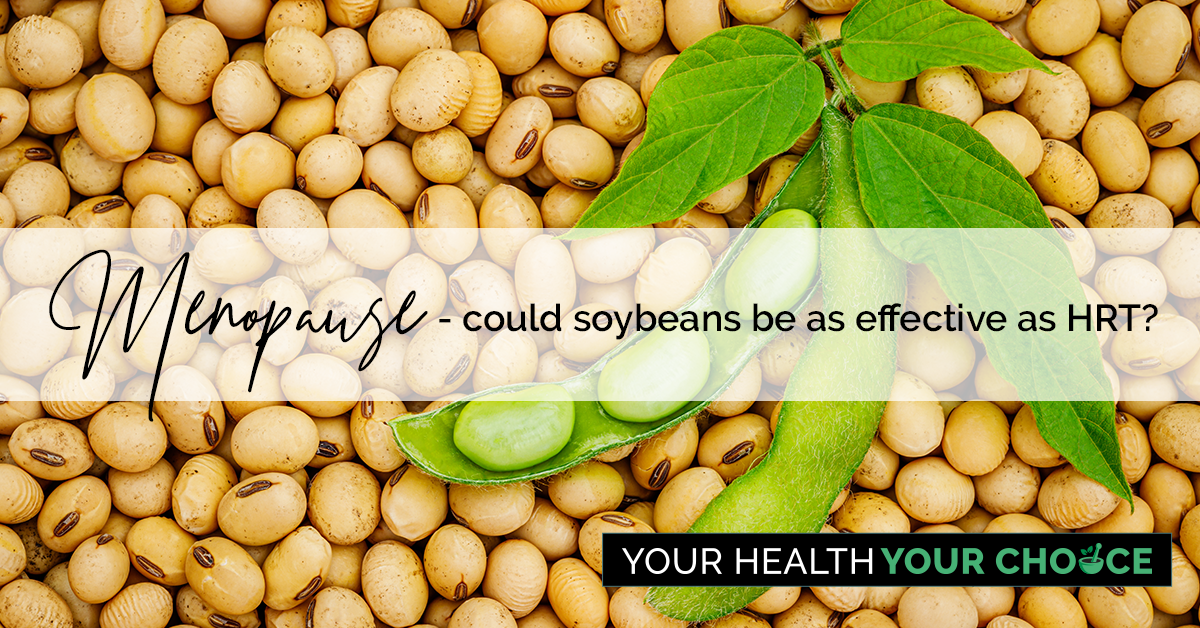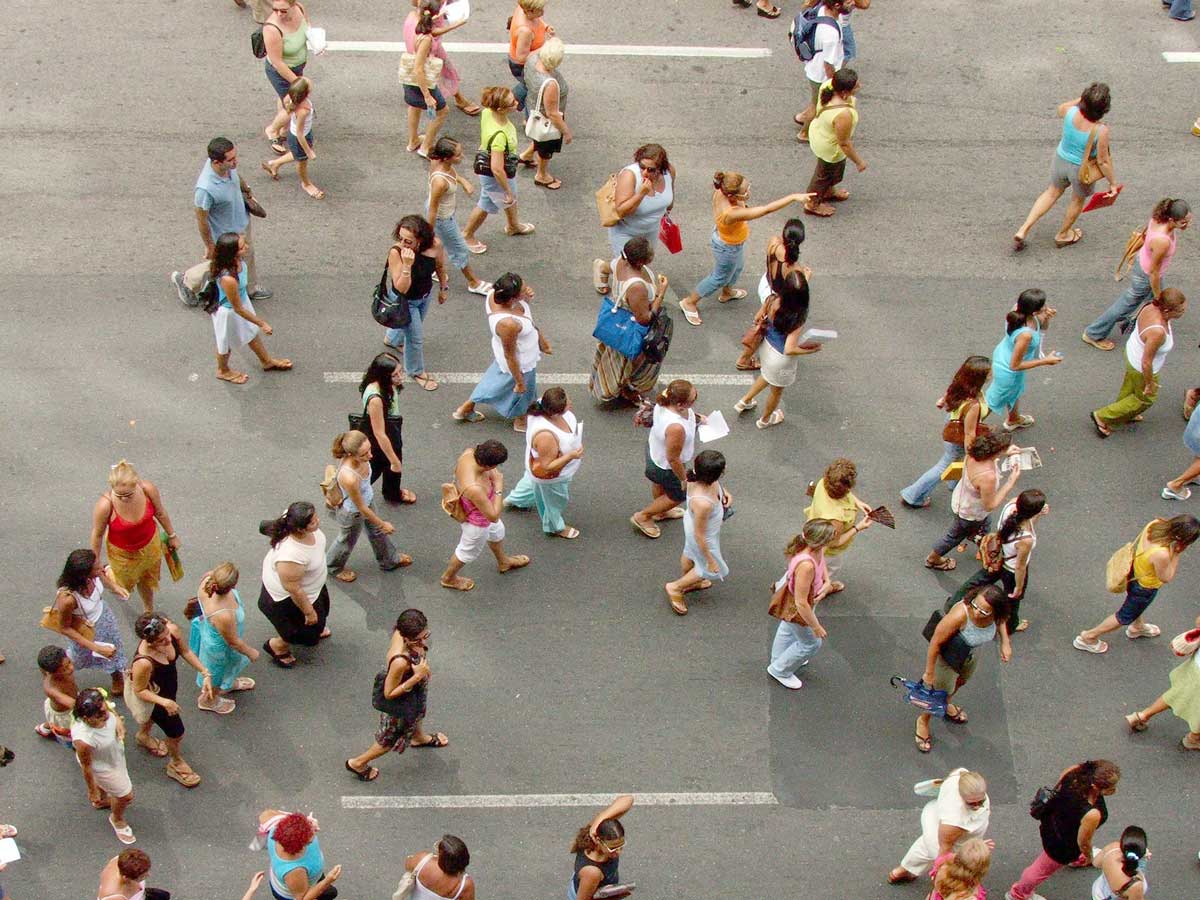Menopausal hot flushes: plant-based diet rich in soybeans as effective as HRT

Hot flushes are a common disturbance experienced by many women during menopause.
A new study published by the North American Menopause Society in the journal Menopause found that participants who adhered to a strictly plant-based diet rich in soy beans experienced an 88% reduction in menopausal hot flushes.
This compares favourably with hormone replacement therapy, which is associated with a 70–90% reduction in hot flashes, but without the associated health risks.
Additionally, women who followed the dietary protocol also experienced weight loss.
Trial design:
The WAVS trial (the Women’s Study for the Alleviation of Vasomotor Symptoms) randomly assigned 38 menopausal women who experienced two or more hot flashes per day to either a control or dietary intervention group and followed their progress over 12 weeks. The control group were asked to maintain their customary diets over the 12 weeks, whereas women in the intervention group adhered to a plant-based diet rich in soy products by incorporating the following dietary changes:
– avoidance of animal products (vegan diet)
– reduction in overall fat intake
– addition of ½ cup (86 g) of cooked soybeans daily
Frequency and severity of hot flashes were recorded using a mobile application, and vasomotor, psychosocial, physical, and sexual symptoms were assessed using the Menopause-Specific Quality of Life Questionnaire.
Results:
The 12-week study recorded the following results:
– Total hot flashes decreased 79% in the intervention group (P < 0.001) and 49% in the control group (P = 0.002; between-group P = 0.01).
– Moderate-to-severe hot flashes decreased 84% in the intervention group (P < 0.001) and 42% in the control group P = 0.009; between-group P = 0.01).
– From 0 to 12 weeks, 59% (10/17) of intervention-group participants reported becoming free of moderate and severe hot flashes (P = 0.002). There was no change in this variable in the control group (between-group P < 0.001).
– The Menopause-Specific Quality of Life Questionnaire revealed significantly greater reductions in the intervention group in vasomotor (P < 0.0001), psychosocial (P = 0.04), physical (P < 0.002), and sexual (P = 0.01) domains.
– Mean body weight decreased by 3.5 kg in the intervention group and increased by 0.8 kg in the control group (P = 0.0021).
Findings mirror diets in other parts of the world
According lead researcher Neal Barnard, MD, president of the Physicians Committee and adjunct professor at the George Washington University School of Medicine,
“We do not fully understand yet why this combination works but it seems that these three elements are key—avoiding animal products, reducing fat, and adding a serving of soybeans.”
“Our results mirror the diets of places in the world, like pre-Westernized Japan and modern-day Yucatán Peninsula, where a low-fat, plant-based diet including soybeans is more prevalent and where postmenopausal women experience fewer symptoms.”
The study is the second phase of a two-part trial, the first of which was also published in Menopause in 2021.
One variable in the first trial was that it was conducted during autumn, raising the question whether the improvements women experienced were due to cooler temperatures. However, women who commenced the study as the weather warmed up during spring experienced the same benefits, suggesting it was the intervention – and not outside temperature – that was the difference.
“These new results suggest that a diet change should be considered as a first-line treatment for troublesome vasomotor symptoms, including night sweats and hot flashes,” explains Dr. Barnard.
Included in the study were 84 postmenopausal women reporting two or more hot flashes per day. They were randomly assigned either to an intervention group—consisting of a low-fat, vegan diet, including half a cup of cooked soybeans daily—or to a control group that made no diet changes for 12 weeks.
“This study demonstrates the effectiveness of a dietary intervention for menopausal symptoms,” Dr. Barnard explains.
“As well, it is precisely the diet that would be expected to reduce the health concerns of many women reaching menopause: an increasing risk of heart disease, breast cancer, and memory problems.”
Consistent with other studies
This finding is consistent with other studies that have suggested that diet is a potential risk factor for menopausal hot flushes and night sweats.
For example, a 2013 study published int he American Journal of Clinical Nutrition found that consumption of a fruit or Mediterranean-style diet decreased the risk of menopausal hot flushes and night sweats, whereas consumption of a high-fat and -sugar diet increased the risk.
Sources:
Barnard, Neal D. MD, FACC1,2; Kahleova, Hana MD, PhD2; Holtz, Danielle N. BS2; Znayenko-Miller, Tatiana MSHS2; Sutton, Macy MS2; Holubkov, Richard PhD3; Zhao, Xueheng PhD4; Galandi, Stephanie MS4; Setchell, Kenneth D. R. PhD, FAASLD4,5. A dietary intervention for vasomotor symptoms of menopause: a randomized, controlled trial. Menopause: October 18, 2022 – Volume – Issue – 10.1097/GME.0000000000002080 doi: 10.1097/GME.0000000000002080
Barnard, Neal D. MD, FACC1,2; Kahleova, Hana MD, PhD1; Holtz, Danielle N. BS1; del Aguila, Fabiola PhD1; Neola, Maggie BS, RD1; Crosby, Lelia M. BA, RD1; Holubkov, Richard PhD3. The Women’s Study for the Alleviation of Vasomotor Symptoms (WAVS): a randomized, controlled trial of a plant-based diet and whole soybeans for postmenopausal women. Menopause: October 2021 – Volume 28 – Issue 10 – p 1150-1156
doi: 10.1097/GME.0000000000001812
Gerrie-Cor M Herber-Gast, Gita D Mishra, Fruit, Mediterranean-style, and high-fat and -sugar diets are associated with the risk of night sweats and hot flushes in midlife: results from a prospective cohort study, The American Journal of Clinical Nutrition, Volume 97, Issue 5, May 2013, Pages 1092–1099, https://doi.org/10.3945/ajcn.112.049965
« Return to News & Features
